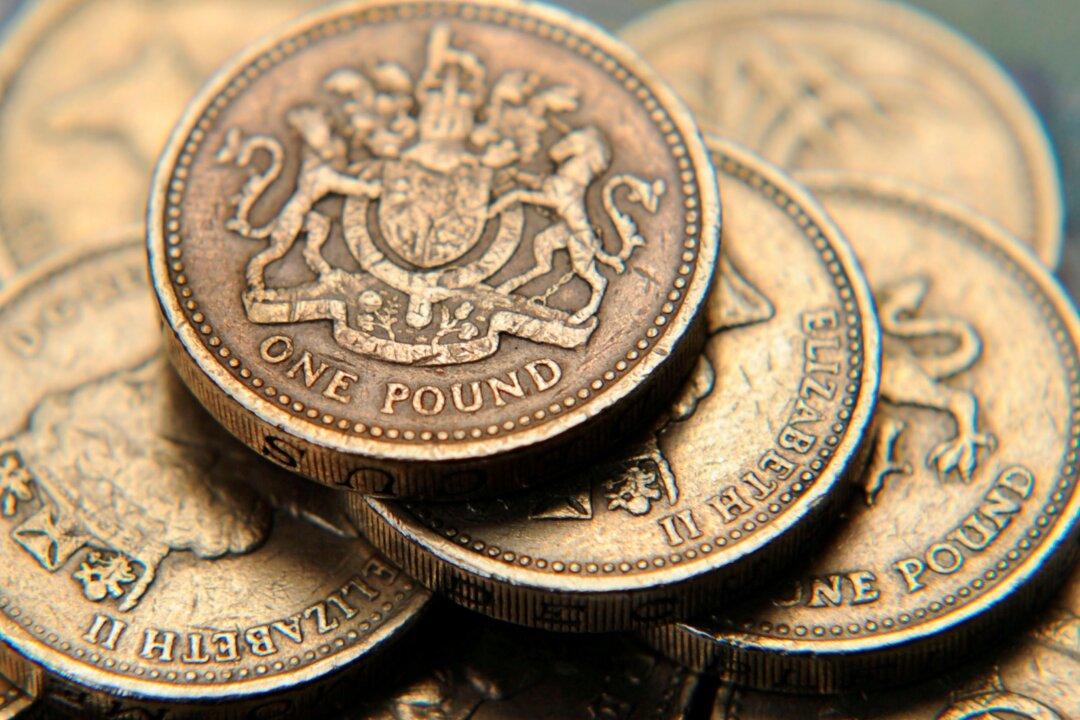LONDON—Sterling jumped on Thursday on a media report that the British government is discussing making changes to fiscal plans announced last month, while investors awaited the impending end of the Bank of England’s support for the bond market.
The yen languished near a fresh 24-year low, while markets were also on edge ahead of U.S. inflation data due later in the day which could give possible clues on how much higher the Federal Reserve will push interest rates.





